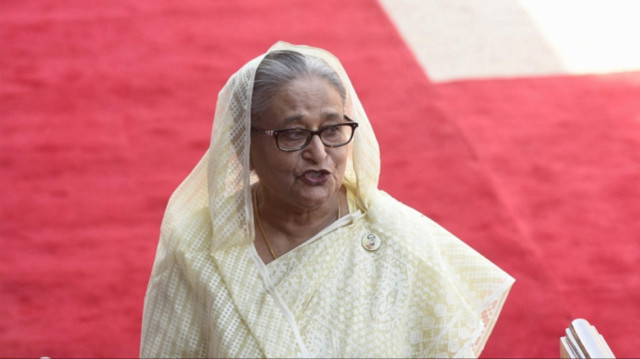
Commission formed to inquire enforced disappearance submits report to government, recommends dissolution of elite force
Preliminary evidence suggests that deposed Bangladeshi Prime Minister Sheikh Hasina was involved in cases of enforced disappearance, a commission formed by the country's transitional government found on Saturday.
The Commission of Inquiry on Enforced Disappearance in Bangladesh said it found the involvement of Hasina and several of her top security officials in the forced disappearance of individuals.
The UN and other human rights groups had alleged that hundreds of people, especially from opposition political parties and dissidents, were victims of forced disappearance while the Hasina-led government was in power.
The commission, established by Bangladesh's current transitional government under Muhammad Yunus, found preliminary evidence implicating Hasina, who fled to neighboring India on Aug. 5 following a student-led uprising.
The five-member commission, led by retired justice Mainul Islam Chowdhury, handed the report titled “Unfolding The Truth” to Yunus in the capital Dhaka, according to a statement by Yunus' media team.
The commission found a "systematic design" aimed at concealing enforced disappearances, its head revealed while submitting the report. He noted that individuals involved in these disappearances or extrajudicial killings lacked knowledge about the victims.
The investigation implicated several high-ranking officials from the ousted Hasina government, including her defense adviser, retired Maj. Gen. Tarique Ahmed Siddique, the former director general of the National Telecommunication Monitoring Centre, Maj. Gen Ziaul Ahsan, and senior police officers.
The commission has already recorded 1,676 complaints of enforced disappearances, with 758 complaints verified. They estimate that the total number of enforced disappearances could exceed 3,500.
The commission recommended disbanding the Rapid Action Battalion (RAB), an elite force sanctioned by the US for serious human rights violations, including enforced disappearance and extrajudicial killings.
This week, the RAB chief acknowledged the existence of a secret detention center, Aynaghar, and apologized for the force's human rights violations. He noted that the decision to keep or disband RAB rests with the government, and they will accept that decision.

